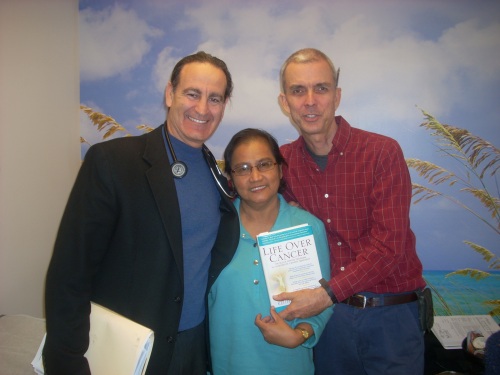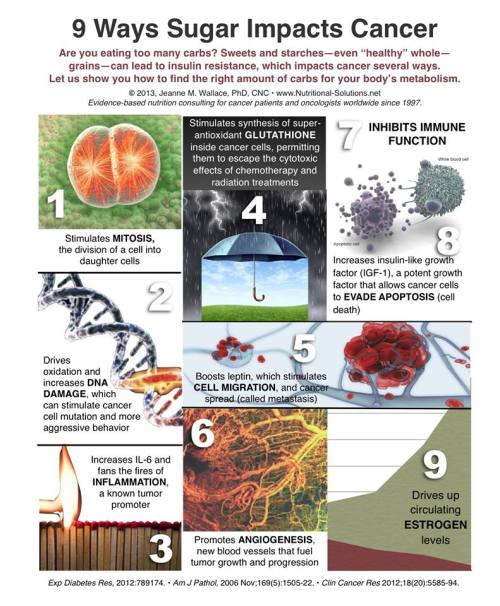I regret not posting in over two weeks.
I have absolutely no doubt that the science based nutrition that I’ve incorporated into our lives has helped my wife tremendously. Her breast cancer was diagnosed as recurring in her chest wall (stage 4) in November 2011. Despite working her way up the chemo ladder to include one drug (Lepatanib aka Tykerb) that cost $11,000 for a bottle of 120 tablets, in 2012 the cancer spread to her lungs to form about 30 lesions. She started to lose weight, lost her appetite, became gravely and progressively weaker, started coughing every five to ten minutes. Conventional oncology alone was giving me no hope or encouragement. As I researched and changed our diet and lifestyle many of her symptoms started reversing. She stopped losing weight, got her energy back, got her appetite back (this is in spite of the chemo often making the food taste awful–which makes her improvement all the more remarkable), she stopped coughing.
I have no doubt that science based nutrition has given her more life and a much better quality of life and regret none of the changes we’ve made. But her breast cancer is a particularly aggressive type (ER PR neg. HER2 pos…. not that far from the dreaded triple negative breast cancer that doesn’t respond to any hormon therapy). It is relentless.
The last few months have been tough. My wife’s last three CT scans (done every two to three months) have all shown minor growth in both areas of concern. Despite any growth being minor I am looking for, at the very least, no change or shrinkage.
The last few months have been an emotional and psychological roller coaster due to the stubborn (“minor”) growth and the stress of the financial pressures associated with dealing with the 20 percent of chemo costs not covered by Medicare. A cousin died of lung cancer in June in Chicago and his treatment and testing ran up a bill of about a million dollars (and he had no insurance!). We may not approach that lofty figure but the thought of anything resembling such huge bills results in pressure for anyone in the middle class. Catastrophic illness is the number one cause of personal bankruptcy in the U.S.. The rich have money and usually coverage, and the poor have government help. Unfortunately anyone in the middle class that loses coverage or only has partial coverage (for example 80/20 or 70/30) is probably in for a real roller coaster ride. My advice is to apply for all the nonprofit help you can possibly qualify for (see my the tab at the resources section at the top of the page for links to some nonprofits).
Anyway I hope to be posting again soon. I’ll continue in my search for more answers and share the best of what I’ve found.
I’m going to contact a company named Nutritional Solutions started by a doctor that has done cancer nutritional consultation around the world since 1997. It was highly recommended by my friend Rick Shapiro (latestagecancer.com) who lost his father to cancer and who is an extreme skeptic so I give his recommendations a close look. I may post my experiences with Nutritional Solutions if I think it will help others.





